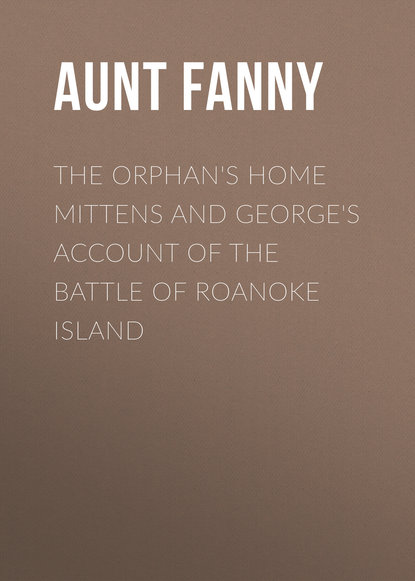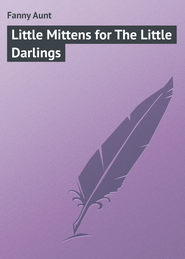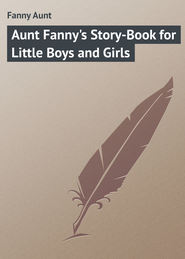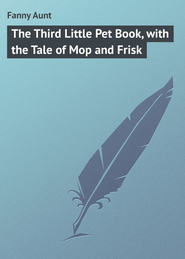По всем вопросам обращайтесь на: info@litportal.ru
(©) 2003-2024.
✖
The Orphan's Home Mittens and George's Account of the Battle of Roanoke Island
Настройки чтения
Размер шрифта
Высота строк
Поля
"At four o'clock in the afternoon, our general made a circuit of the fleet. A shell from the enemy was aimed at his boat, but it exploded, fell into the water, hurting no one. The fighting continued till six o'clock, when our vessels hauled off, and all became quiet. No light was seen on shore but the red glow of the burning ruins of the enemy's quarters. They had fought bravely; and though in the wrong, I could not help feeling a respect for their courage, while I condemned their cause.
"The landing of our brave fellows was effected in a wonderfully short time; for we had no trouble from the enemy, as the men who fired on Lieutenant Andrews and his crew, were sent scampering into the woods by a shell from one of our boats, which went howling like a fiend through the air, and fell down upon them.
"But it began to rain, and in a cold driving storm we waded through the swamp, the rank grass up to our eyes, until we came out on a sandy plain. We tore up a rail fence, and at eleven o'clock that night our bivouac fires spangled the earth.
"You may imagine how much rest we got, with nothing but our thin overcoats to protect us. But our courage flamed up bright in spite of the weather; and when the order to form was given next morning, we rushed to our places with hearty good-will.
"Generals Foster and Burnside came up and said a few pleasant words. Then the reconnaissance was made, and we soon heard firing. We were ordered to advance. The men laughed and joked with each other as they marched, while our great guns boomed and thundered, and the fierce, incessant shriek of rifle shot filled the air.
"We went a mile, then two, and now the shot rattled among the leaves, and men came past carrying the brave Massachusetts boys, pierced by ball and bayonet, showing frightful bleeding wounds. As they were borne to the rear, they would pass us with a smile on their ghastly faces; or would utter a faint, trembling cheer, and the words, 'Never give up, boys, Victory or death!' and then a grand heroic fire would blaze up in their eyes.
"On we marched, till we heard cheers and screams of fury mingling with the thundering of the guns. Thick smoke, through which came flashes with a gleam like tiger's eyes, enveloped us, and the whistle of the bullets rushed close past our ears.
"We were under fire; and now, dear mother, I breathed a prayer to God to nerve my arm and heart. Not a weak soul – not a coward was in our ranks. I looked around, and saw in every resolute face a look which plainly said, 'Glory, or a grave.'
"Then our colonel gave the order to fire. Directly in front of us was the famous redoubt, of which we had heard so much; and we could see riflemen in the trees, under the turfed walls, and behind every possible cover. But we obeyed the order with a will, and for an hour we fought. Not a soul flinched. As the balls struck our men, and they fell, they were carried to the rear, and the ranks closed up without wavering. I seemed turned into stone; my heart hardened. I saw a ball strike poor Walter Averill, who fought at my side. He gave a low cry, and sank to the ground. Two privates carried him to an ambulance, and I turned away with my heart of granite harder, stonier than ever. It seemed impossible to feel sorrow. Suddenly a wild cheer rose up above the awful din. Our flag waved from the redoubt! Another! another! The battle was won!
"Roanoke Island was ours! with all the enemy's guns, and three thousand men with their arms, ammunition, and stores. The victory was complete.
"There was one young fellow, dear mother, who deserved to be made a general. Oh, mother! he was only seventeen years old – three years younger than I. He was ordered to plant a battery of six twelve-pounder boat howitzers from the vessels in the advance of the centre. He dragged these through the swamp and placed them in position. They soon began to thunder and flash into the enemy, who returned the fire with such fury and desperation that every man, one after the other, was shot down, and he was left alone. The chaplain of the Twenty-fifth Massachusetts, Rev. Mr. James, then rushed up and worked at one of the howitzers till his ammunition gave out, and he had to retire. Still this undaunted boy kept on loading and discharging his gun, now entirely alone, and a mark for the most terrible galling fire; and he did this until the enemy had surrendered.
"What a heroic soul lives in that brave boy's body! You may be sure that I found him out when the battle was over, and I just took him in my arms and hugged him tight. I hope we shall be fast friends as long as we live. His name is Benjamin H. Porter, and he lives in New York State. So give three cheers for him, and our grand old State."
The children, though in tears at hearing of all their brother had passed through, complied with his wish, and heartily cheered the brave young midshipman and the dear old State. Then the little mother went on reading —
"The grand, comfortable wooden camps of the enemy were of course turned over to our use; and our miserable captives, who certainly looked like mudsills – though we have the name– were bivouacked outside, well guarded.
"When the madness – for such hardness must have been a temporary frenzy – left me after the battle was over, I got permission to hunt up poor Walter Averill. I soon found him, lying in a room, with five other wounded men. His eye caught mine – a thankful gleam came into them as he beckoned me to him.
"'Oh, Walter!' I cried, my heart now softened and beating loud with sorrow, 'we've gained the victory, but you lie here wounded' – I stopped, for my voice became choked.
"'Yes, George, and dying,' he hoarsely whispered. 'Thank God you have come. I shall never see my home again. Look here.'
"He raised his bloody shirt, and I saw the life-blood slowly ebbing away, from a ghastly wound in his breast.
"Oh, mother, don't think me weak; but I burst into tears, crying, 'Walter, Walter, what will your mother do?'
"'Will you take a message to her and all the dear ones at home?' he answered. 'Tell them I fought bravely, and they must not grieve, for victory spread her pinions over my bloody bed, and took away the sting of death. Tell brother Gus he must comfort mother, and stand with his arms clasped lovingly round her, when the troops come marching home without me. Tell him to look upon them with proud, steadfast eyes; for his brother filled his own place with honor in the ranks, while he was among them, and did not fear to die. It is God's will. He knows best.'
"'And, George, there is another. She who was to have been my dear wife when I came back.' He turned away his head, and through my own blinding tears I saw the great woful drops roll down his cheeks.
"'Oh, Walter,' I sobbed, 'it's too hard!'
"'Next Tuesday would have been my birthday,' he said. 'I should have been twenty-two years old. Some little precious gift will be sure to come from Helen. If it comes in time, will you lay it on my breast to be buried with me? But if too late, take care of it, and return it to her when you find an opportunity. And cut one or two locks of my hair for my mother, and my poor – ' his face changed all at once. With a last, dying effort he put his hand to his neck and drew out a ribbon, to which was attached a miniature, and placed it in my hand. Then in a voice faint, hoarse, dying, he murmured 'Mother – Helen.' One fluttering sigh, and he lay quite still. He was dead.
"The first pale moonbeam came creeping in, and rested softly on his face. It was calmly looking down on the red sand of the battle field with its bloody corses strewn here and there; and it was shining as calmly upon you at home, dear mother, who knew nothing then of that dreadful scene. As I thought of this, and the anguish the events of that day would make for Walter's family, and many another beside, I threw my head down on my dear lost comrade's bed, and sobbed till I thought my heart would break.
"I send the miniature, the locks of hair, and the little package that came the day after we buried him, with this letter. You will have to make these sad tidings known to his family. No one can do it as tenderly – but, 'Walter killed!' There is no softening of that terrible word.
"Good-by, dear mother, and all my dear ones. Write often to me; and, above all, pray for
"Your loving son and brother,
George."
As the letter concluded, Harry, who loved his friend, Gus Averill, next to his own brothers, exclaimed, "Oh, poor Gus!" – threw his arms on the table, and laying his forehead on them, gave way to such terrible convulsive sobs that it seemed as if his very heart was bursting with grief. The poor children could not comfort him, for they were crying themselves. Grateful that their own dear brother was safe, they could still feel the sharp sting of sympathetic sorrow at their friend's loss. No family had taken a greater interest in the children's evening work for the soldiers than Mrs. Averill's; and for the first time that winter, the whole evening was passed by them alone, and in a mournful silence; for the little mother went immediately on her sad and terrible errand, and did not return till quite late.
But a loving, thankful letter was to be despatched without delay to the dear son and brother; and as there was a prospect of his remaining some time in his present quarters, a box of comforts was eagerly prepared.
Every one of the children wrote letters perfectly running over with love and joy at his safety; and Willie and Bennie, with immense efforts and a great deal of rubbing out to make them better, sent to him divers pictures which they had drawn on purpose to please him.
Bennie sent this – which he called General Floyd – with a shield with a C in the middle for "Confederate," and four legs to show how very fast he could run. I am sure we all ought to be glad he did run; for the expression of his face, if Bennie's portrait is correct, is enough to strike terror and dismay to the heart of every loyal soul.
Willie made a likeness of President Davis, with a crown on his head, and pointing with a grin to the stars, which represented the Southern States.
Then Bennie made an elegant picture of the army of the Potomac, with the American eagle in one of the corners looking approvingly at it, all travelling down together to kill a turkey buzzard and a mud turtle, which somebody told him were Southern productions. He put numbers on the heads of those he meant for our generals, also on the guns, and Southern celebrities; and left the American eagle and the privates to get along as well as they could without them.
When Willie was favored with a glance at this remarkable picture, he concluded that it would never do for him to take no notice of the army; so he devoted himself to the production of a cavalry scene. Here it is. I think the horse with five tails and a square lump on his back, is particularly fine, or funny; but Willie is very proud of the whole thing, and wants to have it framed, and hung up in the parlor when George comes home.
A few days after, George wrote another letter, which was much more cheerful. He said:
"February 17th, 1862.
"Dear Mother:
"We are quietly bivouacked here, and everything is coming right except the loss of our friends.
"I send you a rough sketch of the tent in which we worshipped on Sundays. We have the Presbyterian form of service, and every one seems to enjoy the holy quiet of the day. It seems so dreadful that most of our battles have been fought on Sunday. Ah! I am called. I will write more to-morrow if I can.
"February 23d. I am so glad that my letter did not go the other day, as it gives me the opportunity to thank you all – dear, dear ones! for your letters. The box, of course, of which you speak, cannot be here near as quickly, as the express has thousands upon thousands to deliver.
"But Bennie and Willie! what shall I say to express my delight at their elegant pictures! I have pinned them to my tent, and I look at them and think that never were such funny, darling little brothers before! and certainly never were more perfect pictures of the kind. Here is a drawing of an ambulance, which I send in return: two poor wounded soldiers are inside, and two sitting behind with their arms in slings; and here is one I have made of the celebration we had yesterday in honor of Washington's birthday. It was a pretty rough affair; and the few natives who gathered round, did not remind me in the least of New York. The country people here are very uncouth and ignorant; and do not seem to know what comfort is, as we understand it. They "reckon" about everything; and when they consider themselves fortunate in any possession, they say they "reckon" they have a "pretty smart chance" of it.
"I am cheerful during the day, but in my dreams at night, I still hear the deadly whiz of bullets, and feel the horrible breath of the great balls and shells on my cheek. You can form no idea of the peculiar sensation it causes. Then poor Walter's dying form and words rise up in my brain; and I go over that woful scene, again and again. It will be many a long month before I can think of him without grief. He was beloved by everybody in the regiment. Tell this, dear mother, to his family.
"Tell Bennie, I think General Floyd must have used all his four legs when he ran away so fast from Fort Donelson; while that brave Commodore Foote stuck like wax to his duty, and did not leave the fort till he had put not only his own foot in it, but the foot of every man who helped him to take it. That's the kind of Foote for us! Isn't it, Bennie?
"And tell Willie, I showed his picture of Jeff. Davis grinning at his stars, to a darkey, who waits upon me; and he stooped over, put his hands on his knees, and said, laughing, "Hech! hech! y-a-h! Mas' Jeff. Davis, he grin toder side he mouf, bimeby; he mighty fas' wid he larf. Let ole Mas' Linkum 'lone. He knows. He make me for free, de Lord bress him!"
"Oh! oh! how I wish I could be with you all for just one day. I think I should kiss and hug you nearly to death.
"Don't forget to read my letters to Aunt Fanny, dear little old soul! I am afraid she will forget me, or will not have me hanging round her any more, now that I have got so big and clumsy. But she need not try to get rid of me. I'm a deal the strongest, and if she says she won't have me for one of her children forever and a day, I'll come home and pack her up in my cartridge box, and keep her there till she repents of her cruelty. Tell her that I would rather she should
Stab me through,
And shoot me too,
And kill me, which is worse, worse, worse,
than to refuse to consider me as one of her boys.
"The landing of our brave fellows was effected in a wonderfully short time; for we had no trouble from the enemy, as the men who fired on Lieutenant Andrews and his crew, were sent scampering into the woods by a shell from one of our boats, which went howling like a fiend through the air, and fell down upon them.
"But it began to rain, and in a cold driving storm we waded through the swamp, the rank grass up to our eyes, until we came out on a sandy plain. We tore up a rail fence, and at eleven o'clock that night our bivouac fires spangled the earth.
"You may imagine how much rest we got, with nothing but our thin overcoats to protect us. But our courage flamed up bright in spite of the weather; and when the order to form was given next morning, we rushed to our places with hearty good-will.
"Generals Foster and Burnside came up and said a few pleasant words. Then the reconnaissance was made, and we soon heard firing. We were ordered to advance. The men laughed and joked with each other as they marched, while our great guns boomed and thundered, and the fierce, incessant shriek of rifle shot filled the air.
"We went a mile, then two, and now the shot rattled among the leaves, and men came past carrying the brave Massachusetts boys, pierced by ball and bayonet, showing frightful bleeding wounds. As they were borne to the rear, they would pass us with a smile on their ghastly faces; or would utter a faint, trembling cheer, and the words, 'Never give up, boys, Victory or death!' and then a grand heroic fire would blaze up in their eyes.
"On we marched, till we heard cheers and screams of fury mingling with the thundering of the guns. Thick smoke, through which came flashes with a gleam like tiger's eyes, enveloped us, and the whistle of the bullets rushed close past our ears.
"We were under fire; and now, dear mother, I breathed a prayer to God to nerve my arm and heart. Not a weak soul – not a coward was in our ranks. I looked around, and saw in every resolute face a look which plainly said, 'Glory, or a grave.'
"Then our colonel gave the order to fire. Directly in front of us was the famous redoubt, of which we had heard so much; and we could see riflemen in the trees, under the turfed walls, and behind every possible cover. But we obeyed the order with a will, and for an hour we fought. Not a soul flinched. As the balls struck our men, and they fell, they were carried to the rear, and the ranks closed up without wavering. I seemed turned into stone; my heart hardened. I saw a ball strike poor Walter Averill, who fought at my side. He gave a low cry, and sank to the ground. Two privates carried him to an ambulance, and I turned away with my heart of granite harder, stonier than ever. It seemed impossible to feel sorrow. Suddenly a wild cheer rose up above the awful din. Our flag waved from the redoubt! Another! another! The battle was won!
"Roanoke Island was ours! with all the enemy's guns, and three thousand men with their arms, ammunition, and stores. The victory was complete.
"There was one young fellow, dear mother, who deserved to be made a general. Oh, mother! he was only seventeen years old – three years younger than I. He was ordered to plant a battery of six twelve-pounder boat howitzers from the vessels in the advance of the centre. He dragged these through the swamp and placed them in position. They soon began to thunder and flash into the enemy, who returned the fire with such fury and desperation that every man, one after the other, was shot down, and he was left alone. The chaplain of the Twenty-fifth Massachusetts, Rev. Mr. James, then rushed up and worked at one of the howitzers till his ammunition gave out, and he had to retire. Still this undaunted boy kept on loading and discharging his gun, now entirely alone, and a mark for the most terrible galling fire; and he did this until the enemy had surrendered.
"What a heroic soul lives in that brave boy's body! You may be sure that I found him out when the battle was over, and I just took him in my arms and hugged him tight. I hope we shall be fast friends as long as we live. His name is Benjamin H. Porter, and he lives in New York State. So give three cheers for him, and our grand old State."
The children, though in tears at hearing of all their brother had passed through, complied with his wish, and heartily cheered the brave young midshipman and the dear old State. Then the little mother went on reading —
"The grand, comfortable wooden camps of the enemy were of course turned over to our use; and our miserable captives, who certainly looked like mudsills – though we have the name– were bivouacked outside, well guarded.
"When the madness – for such hardness must have been a temporary frenzy – left me after the battle was over, I got permission to hunt up poor Walter Averill. I soon found him, lying in a room, with five other wounded men. His eye caught mine – a thankful gleam came into them as he beckoned me to him.
"'Oh, Walter!' I cried, my heart now softened and beating loud with sorrow, 'we've gained the victory, but you lie here wounded' – I stopped, for my voice became choked.
"'Yes, George, and dying,' he hoarsely whispered. 'Thank God you have come. I shall never see my home again. Look here.'
"He raised his bloody shirt, and I saw the life-blood slowly ebbing away, from a ghastly wound in his breast.
"Oh, mother, don't think me weak; but I burst into tears, crying, 'Walter, Walter, what will your mother do?'
"'Will you take a message to her and all the dear ones at home?' he answered. 'Tell them I fought bravely, and they must not grieve, for victory spread her pinions over my bloody bed, and took away the sting of death. Tell brother Gus he must comfort mother, and stand with his arms clasped lovingly round her, when the troops come marching home without me. Tell him to look upon them with proud, steadfast eyes; for his brother filled his own place with honor in the ranks, while he was among them, and did not fear to die. It is God's will. He knows best.'
"'And, George, there is another. She who was to have been my dear wife when I came back.' He turned away his head, and through my own blinding tears I saw the great woful drops roll down his cheeks.
"'Oh, Walter,' I sobbed, 'it's too hard!'
"'Next Tuesday would have been my birthday,' he said. 'I should have been twenty-two years old. Some little precious gift will be sure to come from Helen. If it comes in time, will you lay it on my breast to be buried with me? But if too late, take care of it, and return it to her when you find an opportunity. And cut one or two locks of my hair for my mother, and my poor – ' his face changed all at once. With a last, dying effort he put his hand to his neck and drew out a ribbon, to which was attached a miniature, and placed it in my hand. Then in a voice faint, hoarse, dying, he murmured 'Mother – Helen.' One fluttering sigh, and he lay quite still. He was dead.
"The first pale moonbeam came creeping in, and rested softly on his face. It was calmly looking down on the red sand of the battle field with its bloody corses strewn here and there; and it was shining as calmly upon you at home, dear mother, who knew nothing then of that dreadful scene. As I thought of this, and the anguish the events of that day would make for Walter's family, and many another beside, I threw my head down on my dear lost comrade's bed, and sobbed till I thought my heart would break.
"I send the miniature, the locks of hair, and the little package that came the day after we buried him, with this letter. You will have to make these sad tidings known to his family. No one can do it as tenderly – but, 'Walter killed!' There is no softening of that terrible word.
"Good-by, dear mother, and all my dear ones. Write often to me; and, above all, pray for
"Your loving son and brother,
George."
As the letter concluded, Harry, who loved his friend, Gus Averill, next to his own brothers, exclaimed, "Oh, poor Gus!" – threw his arms on the table, and laying his forehead on them, gave way to such terrible convulsive sobs that it seemed as if his very heart was bursting with grief. The poor children could not comfort him, for they were crying themselves. Grateful that their own dear brother was safe, they could still feel the sharp sting of sympathetic sorrow at their friend's loss. No family had taken a greater interest in the children's evening work for the soldiers than Mrs. Averill's; and for the first time that winter, the whole evening was passed by them alone, and in a mournful silence; for the little mother went immediately on her sad and terrible errand, and did not return till quite late.
But a loving, thankful letter was to be despatched without delay to the dear son and brother; and as there was a prospect of his remaining some time in his present quarters, a box of comforts was eagerly prepared.
Every one of the children wrote letters perfectly running over with love and joy at his safety; and Willie and Bennie, with immense efforts and a great deal of rubbing out to make them better, sent to him divers pictures which they had drawn on purpose to please him.
Bennie sent this – which he called General Floyd – with a shield with a C in the middle for "Confederate," and four legs to show how very fast he could run. I am sure we all ought to be glad he did run; for the expression of his face, if Bennie's portrait is correct, is enough to strike terror and dismay to the heart of every loyal soul.
Willie made a likeness of President Davis, with a crown on his head, and pointing with a grin to the stars, which represented the Southern States.
Then Bennie made an elegant picture of the army of the Potomac, with the American eagle in one of the corners looking approvingly at it, all travelling down together to kill a turkey buzzard and a mud turtle, which somebody told him were Southern productions. He put numbers on the heads of those he meant for our generals, also on the guns, and Southern celebrities; and left the American eagle and the privates to get along as well as they could without them.
When Willie was favored with a glance at this remarkable picture, he concluded that it would never do for him to take no notice of the army; so he devoted himself to the production of a cavalry scene. Here it is. I think the horse with five tails and a square lump on his back, is particularly fine, or funny; but Willie is very proud of the whole thing, and wants to have it framed, and hung up in the parlor when George comes home.
A few days after, George wrote another letter, which was much more cheerful. He said:
"February 17th, 1862.
"Dear Mother:
"We are quietly bivouacked here, and everything is coming right except the loss of our friends.
"I send you a rough sketch of the tent in which we worshipped on Sundays. We have the Presbyterian form of service, and every one seems to enjoy the holy quiet of the day. It seems so dreadful that most of our battles have been fought on Sunday. Ah! I am called. I will write more to-morrow if I can.
"February 23d. I am so glad that my letter did not go the other day, as it gives me the opportunity to thank you all – dear, dear ones! for your letters. The box, of course, of which you speak, cannot be here near as quickly, as the express has thousands upon thousands to deliver.
"But Bennie and Willie! what shall I say to express my delight at their elegant pictures! I have pinned them to my tent, and I look at them and think that never were such funny, darling little brothers before! and certainly never were more perfect pictures of the kind. Here is a drawing of an ambulance, which I send in return: two poor wounded soldiers are inside, and two sitting behind with their arms in slings; and here is one I have made of the celebration we had yesterday in honor of Washington's birthday. It was a pretty rough affair; and the few natives who gathered round, did not remind me in the least of New York. The country people here are very uncouth and ignorant; and do not seem to know what comfort is, as we understand it. They "reckon" about everything; and when they consider themselves fortunate in any possession, they say they "reckon" they have a "pretty smart chance" of it.
"I am cheerful during the day, but in my dreams at night, I still hear the deadly whiz of bullets, and feel the horrible breath of the great balls and shells on my cheek. You can form no idea of the peculiar sensation it causes. Then poor Walter's dying form and words rise up in my brain; and I go over that woful scene, again and again. It will be many a long month before I can think of him without grief. He was beloved by everybody in the regiment. Tell this, dear mother, to his family.
"Tell Bennie, I think General Floyd must have used all his four legs when he ran away so fast from Fort Donelson; while that brave Commodore Foote stuck like wax to his duty, and did not leave the fort till he had put not only his own foot in it, but the foot of every man who helped him to take it. That's the kind of Foote for us! Isn't it, Bennie?
"And tell Willie, I showed his picture of Jeff. Davis grinning at his stars, to a darkey, who waits upon me; and he stooped over, put his hands on his knees, and said, laughing, "Hech! hech! y-a-h! Mas' Jeff. Davis, he grin toder side he mouf, bimeby; he mighty fas' wid he larf. Let ole Mas' Linkum 'lone. He knows. He make me for free, de Lord bress him!"
"Oh! oh! how I wish I could be with you all for just one day. I think I should kiss and hug you nearly to death.
"Don't forget to read my letters to Aunt Fanny, dear little old soul! I am afraid she will forget me, or will not have me hanging round her any more, now that I have got so big and clumsy. But she need not try to get rid of me. I'm a deal the strongest, and if she says she won't have me for one of her children forever and a day, I'll come home and pack her up in my cartridge box, and keep her there till she repents of her cruelty. Tell her that I would rather she should
Stab me through,
And shoot me too,
And kill me, which is worse, worse, worse,
than to refuse to consider me as one of her boys.











